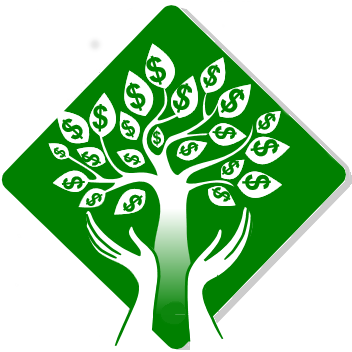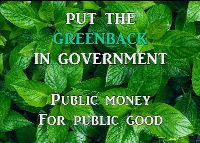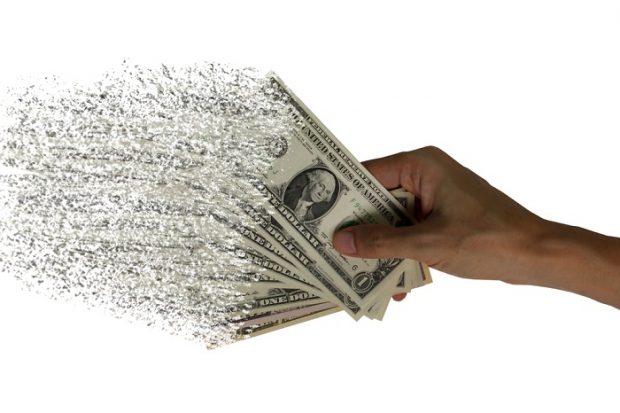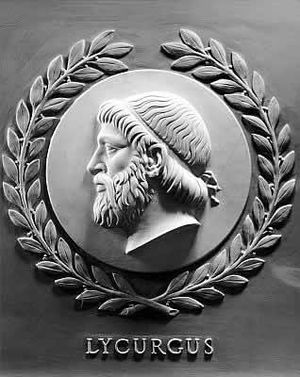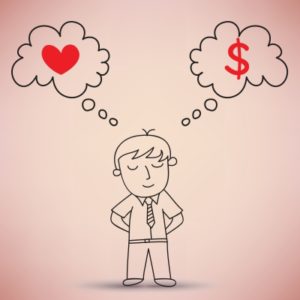
Aligning Money and Love
“Money is both a powerful agent of destruction as well as the main way we coordinate human creativity in our world today. It is a medium of generosity and of trauma or innovation and oppression. What does it take to heal the wound of money on a personal and systemic level? What does it take to align money with love?” — Charles Eisenstein
I think we all see that “what the world needs now is love, sweet love.” And we all see how money dominates every aspect of our world today making these questions particularly important. What does it take to heal the wound of money on a personal and systemic level? What does it take to align money with love?
The good news is that technically it may not be as complicated as one might imagine. As the great economist historian John Kenneth Galbraith said, “Do not fear simplification, complexity is used to claim sophistication and hide simple truths.” Having studied the role of money in society for the last 15 years, I have found this to be true.
Money is surrounded and confounded by complexity and the language of monetary policy seems so complex as to be impenetrable. The truth about money hasn’t been too difficult to hide since money is an abstraction to begin with, putting it in the psychological realm. Money, outside of the currencies representing it, is defined as an abstract social power embodied in law as an unconditional payment system.
Besides the obvious physical power of money, a growing body of research is revealing a subconscious psychological influence as well with the money we use today. That influence can be positive or negative depending on how the money is created and allocated.
Look at it this way. Love and fear are the emotional poles of life from which all the other emotions flow. Money can be fear-based or love-based. The one our world operates under today, as one might guess, is a fear-based system.
“There are only two emotions: love and fear. All positive emotions come from love, all negative emotions from fear. From love flows happiness, contentment, peace, and joy. From fear comes anger, hate, anxiety and guilt. It’s true that there are only two primary emotions, love and fear. But it’s more accurate to say that there is only love or fear, for we cannot feel these two emotions together, at exactly the same time. They’re opposites. If we’re in fear, we are not in a place of love. When we’re in a place of love, we cannot be in a place of fear.”
— Elisabeth Kubler Ros
A fear-based system is a privately owned system that creates and allocates money for personal gain, profits are sacrosanct. As Buckminster Fuller pointed out, it is based on the fear of there not being enough to go around. Such fear in the minds of immensely powerful men, despite their intentions, can be very destructive when they try to control everything and create a self-fulfilling prophecy. This system concentrates wealth systematically by design which includes the compounding of interest and has created astonishing wealth inequity. That systemic fear has created numerous violent and invasive defenses to protect itself as well as to enforce the extraction of more wealth.
“The mistake lies in fearing money and trusting debt.”
— Henry Simons
How our money system works has been systematically and intentionally hidden from us. It has been left out of our education at every level, and never explored in mass media despite huge controversy surrounding it, such as in 2008. Money is surrounded by myth and mystery. Those who control the creation and allocation of money, the money system, can and do use it as an instrument of power, the power to dominate the market. The so-called “hidden hand of the market” is really the hidden hand of those with enough money to dominate it. Martin van Burren called it the “Money Power.” Later it was referred to as "The Money Trust" and in 1912 the Pujo Committee investigations of The Money Trust proved and mapped out in diagrams how the big banks controlled every industry and market in the nation through interlocking directorates. Legislation was passed but with loopholes the size of an armored truck because by then the bankers had control of financial legislation. The current pandemic has allowed the Money Power to further entrench their power in a desperate effort to thwart the inevitability of change.
“Governments do not govern, but merely control the machinery of government, being themselves controlled by the hidden hand.”
— Benjamin Disraeli (1804–1881) Prime Minister of England, British statesman, novelist
What does it take to heal the wound of money on a personal and systemic level?
At a personal level we do what we can to use our money wisely to take care of ourselves, our families our communities. There are people focusing on helping people with their attitudes and limiting beliefs about money to heal the wound on a personal level. People like Lynn Twist who directs many of her efforts toward philanthropy and support for the Pachamama Alliance, an organization working with indigenous people to save habitat and culture. Their struggle against the uncaring juggernaut of capitalism is hampered by the mindset of industrial progress. Progress in turning the world of life into a world of death.
Such efforts to appeal to the mind and behaviors of humanity do so all within the deleterious effects of the current money system we have. This powerfully destructive system externalizes the costs of its destruction and is today doing vastly more harm than good, physically as well as psychologically. In fact, if one searches “the psychological consequences of money” one will find a growing body of research into how money affects human behavior. Keep in mind that the money we use today is based on usurious debt, it is not really money, it is credit being used for money. The results of numerous studies demonstrate that the mere presence of ‘money’ changes people, can be a barrier to social intimacy, and can trigger unethical intentions and behavior. Research indicates that debt used for money retards cooperation and collaboration and encourages individualism. Change society’s money system and you can change society’s behavior.
If we are to heal the wounds of money, we will have to change from the privately owned for-profit money system we have which creates credit, debt used for money, to a public for-care money system that creates money as an asset.
The Stanford University Encyclopedia of Philosophy says there are but two theories of money. They are the Commodity Theory and the Credit Theory of money. The Commodity Theory says a commodity must be used for money, like gold or silver, and some have even recommended a basket of commodities be used to base money on. Commodity money was common when gold was the standard but was never a good basis for money as commodities are controlled by wealthy private interests. The Credit Theory of money says credit should be used for money, as it is today, and that all money is debt owed the issuer of the money. Credit is also controlled by wealthy private interests. There is no Money Theory of money listed, thus we are left to assume only a commodity or credit can be used for money instead of money being created and used for money. If that sounds confusing it may be because we are not taught what money is or how the money is created.
“The study of money, above all other fields in economics, is one in which complexity is used to disguise truth or to evade truth, not to reveal it. The process by which banks create money is so simple that the mind is repelled.”
— John Kenneth Galbraith
Education is treated as a business in this society, so the big financial interests control the educational system as well. The study of money must therefore be done through independent study of history, the operations of the Fed, the U.S. Treasury, and the works of the great monetary thinkers throughout history, many of whom have been left out of our educational curriculum. People like Alexander del Mar, Silvio Gesell and Frederick Soddy whose monetary insights are as relevant today as they were in their times. Leaving out the monetary history, that is, the story of money, means the story of power is left out.
“Only the small secrets need to be protected. The big ones are kept secret by public incredulity.” From ‘The Medium is the Message’ by Marshall McLuhan
The history we are taught is the surface of the story at best. The political and military wins and losses leave you to assume that is where the power is. However, just as no field can be planted, or widget manufactured, or oil well drilled, there can be no political or military campaign without money. Those who control the money can control what the schools teach and what media reports thus they control the political system and the military, if they can be persuaded, using both the threat and the bribe of money, to do so.
“Great nations are simply the operating fronts of behind-the-scenes, vastly ambitious individuals who had become so effectively powerful because of their ability to remain invisible while operating behind the national scenery.”
— Richard Buckminster Fuller (1895–1983) American visionary, designer, architect, poet, author, and inventor
What gives money the power to wound or heal?
Doesn’t this sound like a decision? At the personal level of cash in hand yes, it is a decision. Do I buy drugs, alcohol, or a gun to inflict damage; or do I buy food, healthcare, and education to heal my life? If you control massive amounts of money it is again a decision; do I manipulate food prices for my personal profits, buy a politician, start war? Or do I invest in the general welfare, feeding, housing, and educating people? Doing anything in this system requires money which means increasing debt. A for-profit money system means we have a for-profit society and that means unrelenting competition to pay the interest on the debt. You may have noticed too that we pay the interest, the banks profit, before we pay much on the principle. The banks want their money first, before the payments on the principle begin extinguishing the money created as debt. The numbers that went up in your account when the loan was made come back down as payments are made.
What does it take to align money with love?
To heal the wounds, we need to stop that which is causing the damage. If you come into a room to discover a faucet had been left on and the room is flooded, you don’t just start mopping up the mess until you have turned off the faucet, the source of the mess.
Some people blame money while imagining that there is nothing to know about money, except that they must have it to survive. Some say we do not need money, that there is a scientific way to distribute all the needs of people scientifically without money. This conjures images of top-down distribution schemes that have never proven adequate to the creative needs of the people. However, without an exchange mechanism, a complex economy cannot work.
To heal all these wounds, we need not eschew money. Instead, we need to understand it and change the money system to one that serves the general welfare of humanity. This will require a political intervention since those in power are not likely to change on their own because of the negative effects of debt-money on the psyche.
“Since the dawn of times, monetary systems have been shaping the flows of human activity in every realm of endeavor; food production, education, health, business etc., by determining how we value, apply and exchange our creativity, and the fruits of our labor. It is for this reason the most influential of all human-made systems.”
— Bernard Lietaer
A love-based system is collectively owned, a publicly owned system that creates and allocates money for public purpose, for the general welfare, to assure domestic tranquility. It creates money as a debt-free permanently circulating asset greatly reducing the need for borrowing money. It is amazingly simple and transparent, not complex, and opaque. By creating money in this way, the psychological consequences would be reversed. Instead of it causing negative individualistic non-cooperation and an unwillingness to help or collaborate, society would be influenced in ways that support community collaboration, caring for others and causing positive attitudes. Today research indicates that 80% of our thoughts are negative but a public money system dedicated to the general welfare would reverse that influence and create an economics of care, aligning money and love.
“Love is the bow on Life’s dark cloud. It is the morning and the evening star. It shines upon the babe, and sheds its radiance on the quiet tomb. It is the mother of art, inspirer of poet, patriot and philosopher. It is the air and light of every heart—builder of every home, kindler of every fire on every hearth. It was the first to dream of immortality. It fills the world with melody—for music is the voice of love. Love is the magician, the enchanter, that changes worthless things to Joy, and makes royal kings and queens of common clay. It is the perfume of that wondrous flower, the heart, and without that sacred passion, that divine swoon, we are less than beasts; but with it, earth is heaven, and we are gods.”
— Robert G. Ingersoll (1833–1899) American lawyer, Civil War veteran, political leader, orator of United States during the Golden Age of Free Thought, nicknamed “The Great Agnostic” Source: Orthodoxy (1884)
